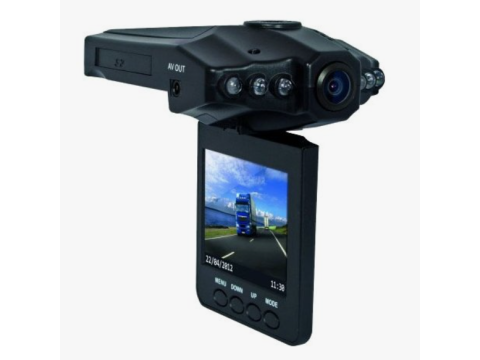DASH CAMS FOR YOUR RIDE
DUAL-CAMERA DASH CAMS
OPTIONS AND FEATURES
With Radar Detectors
With Navigation Systems
Mirror Dash Cams
If you’re on the hunt for a solid dash cam, you’ve probably noticed the crazy amount of choices out there. Electronics stores are packed with models that come loaded with different features, and manufacturers are constantly dropping new ones.
So how do you pick the right one? It all comes down to figuring out what features matter most to you. Let’s break it down.
KEY FEATURES AND MODES OF DASH CAMS
Video Quality
This is a biggie, no matter what brand or model you’re eyeing. Here’s what you’ll typically see:
VGA (640x480 pixels): Don’t bother. This format is ancient history and usually found in dirt-cheap models. You’ll barely make out car colors, let alone license plates. Skip it.
HD (1280x720 pixels): Decent quality with clear playback, but fast-moving objects (like that car cutting you off) can come out blurry.
Full HD (1920x1080 pixels): The gold standard. Crisp details that capture everything from street signs to pedestrians’ faces and license plates. Perfect for when you need evidence.
Frame Rate
More frames mean smoother video. Here’s the deal:
30 FPS (frames per second): The sweet spot. Most cams shoot at this speed, and it’s solid for everyday use.
60 FPS: Great for action-packed scenes or if you want to capture every little detail, but it’ll eat up memory fast.
Camera Sensor Types
CMOS Sensors: Common and affordable. Good for daytime recording.
CCD Sensors: Cost more but shine in low-light or nighttime conditions.
Lens Movement
Some cams have movable lenses, letting you adjust the angle. For example, they might rotate horizontally (180° or more) and vertically (up to 360°), which is great for recording inside your car’s cabin.
Dual-Camera Systems
Integrated Design: Both cameras in one unit (e.g., one facing the road, the other pointing inside). Perfect for rideshare drivers.
Separate Cameras: Independent cameras you can mount in different spots. Example: one in the front and another at the back. More flexibility.
Viewing Angle
The wider, the better. Most dash cams range from 60° to 150°:
60°-75°: Covers just the lane ahead.
120°+: Grabs the whole road, including sidewalks, signs, and intersections.
Display Screen
Dash cams with monitors make it easier to adjust settings and playback footage on the spot (handy for police or insurance claims).
Monitor-free models are stealthier and less likely to attract thieves.
Memory Options
Most dash cams need extra memory cards (SD or microSD):
Max out the storage your cam supports (e.g., 64GB or 256GB).
Built-in memory is rare and usually only for backup storage.
SPECIAL FEATURES
G-Sensor (Impact Detection):
Automatically saves footage during crashes or sudden stops. Licensed models can use this data in legal disputes.
Night Vision:
Depends on the sensor’s sensitivity. Quality varies from “meh” to “solid” based on the camera’s specs.
Loop Recording:
No need to stress about running out of memory. The cam records over old files when space is low.
Motion Detection:
Starts recording only when movement is detected. Perfect for parked cars.
Power Backup (Built-In Battery):
Saves footage even if your car’s power cuts out.
DASH CAMS WITH RADAR DETECTORS
Neoline X-COP 9100:
Specs: Full HD, CCD Sony lens, supports 256GB memory cards.
Radar Detection: Picks up laser speed traps and average-speed systems like "Autodoria."
Pros: High functionality, lots of storage.
Cons: Limited radar frequency range, tricky manual setup.
Playme P400 TETRA:
Specs: Full HD recording, Ambarella A7 processor, supports 64GB cards.
Radar Detection: Detects modern laser speed traps.
Pros: Reliable GPS updates, quality optics.
Cons: Weak laser sensor sensitivity.
DASH CAMS WITH GPS NAVIGATION
Garmin NuviCam LMT Rus:
Specs: 6-inch touchscreen, 64GB memory, Full HD recording.
Navigation: Real-time traffic updates via smartphone.
Pros: Voice control, feature-rich navigation.
Cons: Pricey.
Prology iMap-580TR:
Specs: Navitel maps, basic HD recording (720p).
Pros: Long battery life, user-friendly interface.
Cons: Poor video quality.
MIRROR DASH CAMS
ARENA PRO 9900:
Specs: 5-inch screen, Full HD, rear camera, Android-based.
Features: Includes radar detection, GPS, and FM transmitter.
Pros: All-in-one functionality.
Cons: Dim screen, short battery life.
TrendVision aMirror:
Specs: Dual cameras, GPRS, Android OS.
Features: Supports additional apps, WiFi updates.
Pros: Sleek design, versatile features.
Cons: Average recording quality at dusk.
WHY GO FOR A HYBRID DEVICE?
Compact Setup: Saves space on your windshield.
Cost-Effective: Cheaper than buying three separate devices.
High Functionality: Android or Windows-based systems offer great versatility.
Cons to Watch Out For:
Budget hybrids often skimp on quality (e.g., low-grade cameras or weak radars).
If it breaks, you lose all three functions at once.
Repairs can be expensive and time-consuming.
FINAL WORDS
The right dash cam depends on your needs. Whether you’re after high-res recording, radar detection, navigation, or a stealthy setup, there’s something out there for you. Invest in a model that fits your lifestyle and gives you peace of mind on the road.

